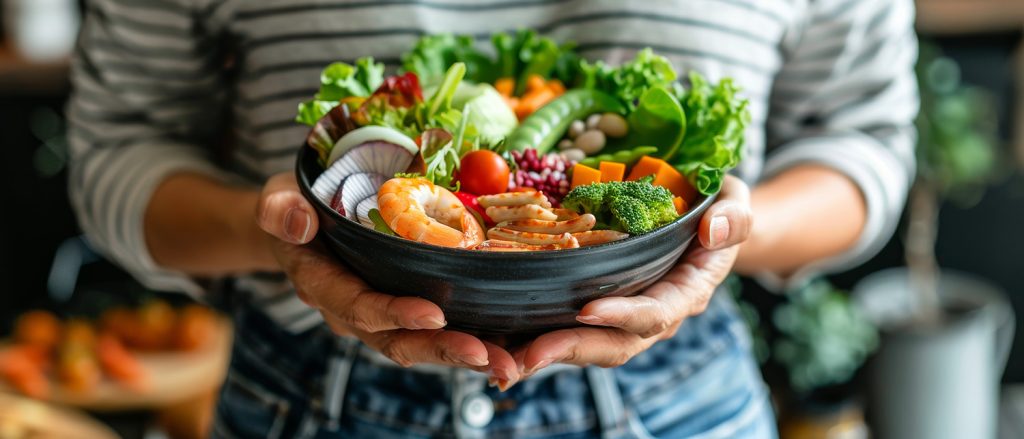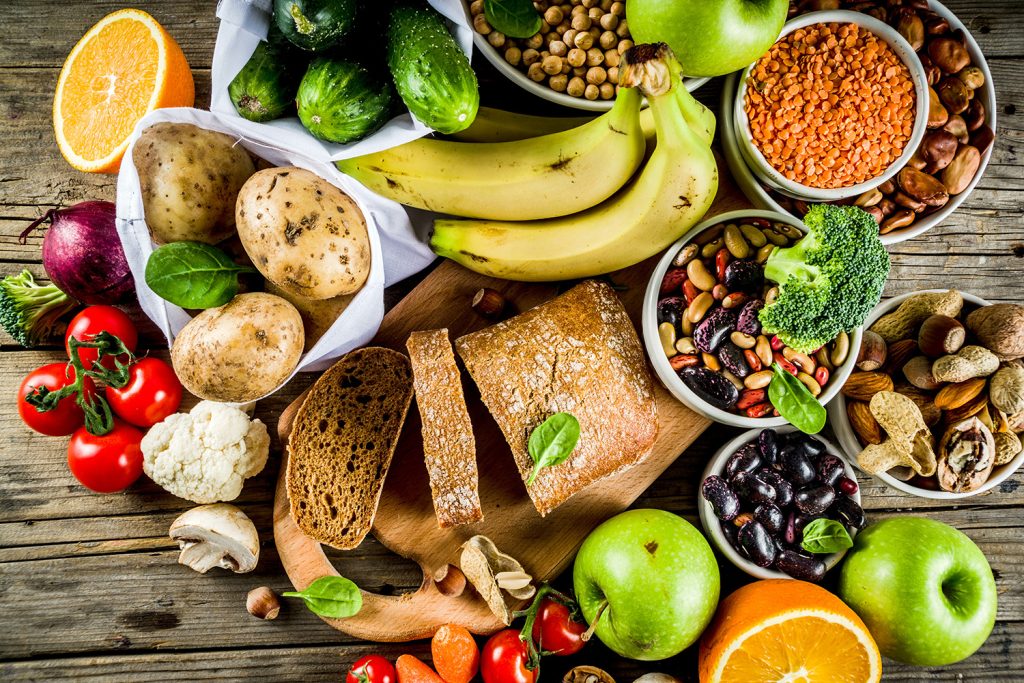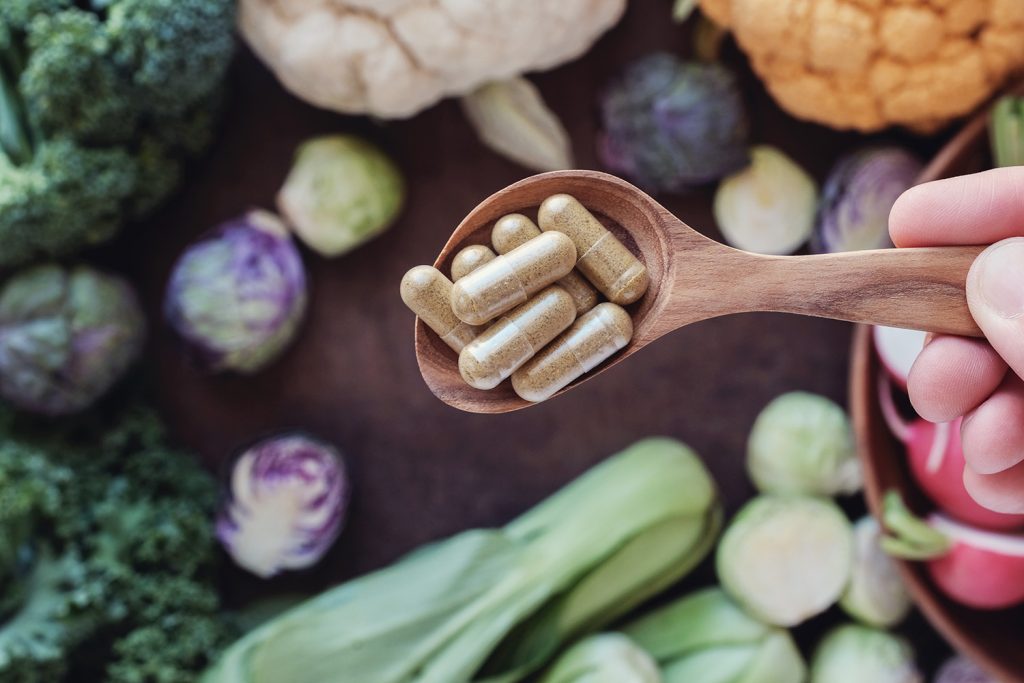
60 second summary:
- Having a healthy gut can help support your digestion and immune system
- You can boost your friendly bacteria by eating a diet rich in fibre
- Try to have lots of different sources of fibre like wholegrains, pulses, nuts, seeds, fruits and vegetables
- The more types of plant foods you eat, the better – even herbs and spices count!
- You can also boost your gut health by exercising regularly, staying hydrated and spending time outside in nature

The supermarket shelves are full of products claiming to support your gut health and we are bombarded with articles about the importance of maintaining a healthy balance of gut bacteria. It can be very confusing trying to separate fact from fiction. We discuss what a healthy gut actually means along with simple ways to boost your gut health without buying expensive food and supplements.
What is a healthy gut?
Our gut or intestine helps us to digest and absorb energy and nutrients from the food that we eat. It’s a very clever part of the body and has many roles to play in keeping us healthy. The lower part of the gut, which is often called the colon, plays an important role in our digestion and immune function, as well as potentially helping to regulate our weight and even our mood. It contains many different types of bacteria. That might sound a bit scary but actually, some of these bacteria perform a vital role for our gut health.
Making sure that you have a healthy balance of those good or ‘friendly’ bacteria can be the first step to improving your overall health. And the way to do that is by following general healthy eating principles, rather than taking lots of supplements. However, remember that if you are suffering with digestive problems, it’s best to see your doctor or a gut health specialist first.
Fibre facts
We currently eat about 20g a fibre a day but we need around 30g so boost your intake in the following ways:
- Swap white for wholegrain foods like bread, rice and pasta.
- Add some high fibre foods to your diet with pulses and lentils, nuts and seeds, wholegrain cereals like oats and plenty of vegetables and fruits
- Try to eat some foods that contain ‘prebiotic fibre’ which helps feed those friendly bacteria in your gut. You can find prebiotics in onions, leeks, garlic, bananas, nuts like walnuts and almonds.

Do I need to take probiotic supplements?
If you eat a balanced diet with plenty of variety and lots of fibre, you shouldn’t need to take a probiotic supplement (these are the friendly bacteria themselves and can be quite expensive). While they might benefit some people who are experiencing digestive issues, the results can vary from one person to another and some people may see no change at all.
You can find probiotic bacteria in some foods naturally like yoghurt and cheese as well as more specialist foods like pickled cabbage (sauerkraut) or kefir.
How else can I boost my gut health?

- Eat as many plant-based foods as you can. Try frozen mixed berries, mixed nuts and seeds and mixed herbs and spices to boost your variety
- Take regular exercise – whatever you enjoy
- Keep hydrated – good digestion needs hydration so make sure you drink enough fluids. Water is best but tea and coffee can still count. If you drink a lot of soft drinks, swap them for the sugar-free versions and try to swap some of them for water if you can
- Get outside – a walk in nature, whether it’s a park or the countryside, isn’t just good for mental health; it can benefit your gut too!
Claire Baseley – Consultant Nutritionist




